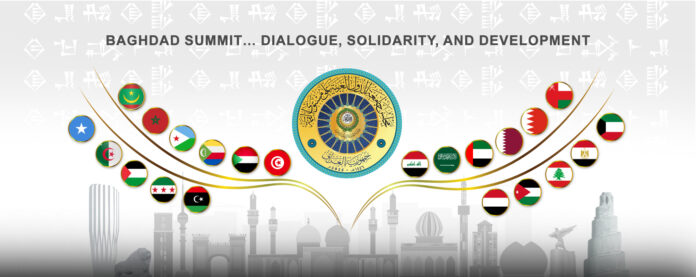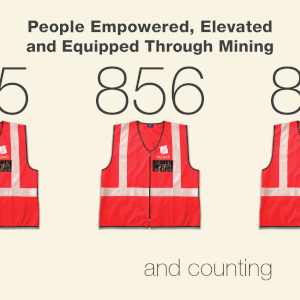By Mirna Fahmy
The Arab League convened its 2025 summit in Baghdad on Saturday, bringing together leaders and senior officials from all 22 member states to address pressing regional crises, most notably the ongoing war in Gaza.
The one-day summit, chaired by Iraqi President Abdul Latif Rashid, followed a series of preparatory meetings earlier in the week on May 17, 2025, including sessions with foreign ministers. It marked a rare moment of full attendance by Arab leaders and international guests, underscoring the urgency of the summit’s agenda.
Among the key attendees were Arab League Secretary-General Ahmed Aboul Gheit, Egyptian President Abdel Fattah el-Sisi, Saudi Crown Prince and Prime Minister Mohammed bin Salman, Jordan’s King Abdullah II, and Qatari Emir Tamim bin Hamad Al Thani. The Palestinian cause dominated the summit’s discussions.
Notably, the timing of the summit just one day after the U.S. President Donald Trump’s high-profile visit to the Gulf added a layer of geopolitical intrigue to the proceedings.
“The Summit was well-ahead arranged to take a collective solid Arab stand towards the aggression of Israel in Gaza and the Palestinian territories in general,” Professor Maged Botros, a tenured professor at Helwan University, Egypt, with an extensive international background in academia and consulting told Diplomatic Inside.
Professor Botros held a research associate position at the University of Manchester, U.K., and led the Business School at the Canadian International College in Cairo. A two-time Fulbright scholar in the U.S., Dr. Botros has taught internationally at institutions like Virginia Commonwealth University and Maastricht School of Management, and currently teaches in the MBA program at Cape Breton University in Cairo.
His affiliations include prominent organizations like the Fulbright Commission, the American Council of Young Political Leaders, UNILEAD/DAAD, and the Virginia Export Association.
In a unified stance, leaders called for an immediate ceasefire, condemned Israeli military operations, and demanded expanded humanitarian access. A joint declaration reaffirmed support for a sovereign Palestinian state based on the 1967 borders, with East Jerusalem as its capital. The summit also rejected any forced displacement of Palestinians or changes to the status of Jerusalem.
However, Botros described the summit as a “limited success”, citing multiple factors. He emphasized the intersecting national interests of Arab countries, where prioritizing individual national goals often overshadows broader Arab concerns. He also highlighted their desire to enhance relations with the U.S. for concessions, sometimes at the expense of regional alliances. A secondary factor, he noted, was the lower representation of some Arab delegations.
Adding to the complexities, the summit’s timing in relation to Trump’s Gulf visit highlighted shifting regional dynamics. For instance, Egypt has experienced a tense relationship with the U.S. over the five months since Trump took power. This strain has led to a rapprochement between Egypt, China, and Türkiye, and even a minimal closeness with Iran.
Behind the U.S.’s proclaimed support for Egypt, Botros revealed that Washington discretely seeks to minimize Egypt’s role in the Gaza conflict. This stems from Cairo’s strong, unwavering stance on the Palestinian Cause and its refusal of Palestinian immigration.
Echoing this position, Egyptian President el-Sisi issued a blunt statement: “Even if Israel succeeds in normalizing relations with Arab countries through Abraham Accords, lasting peace will remain elusive unless a Palestinian state is established.”
Seven Arab countries — the United Arab Emirates, Bahrain, Morocco, Sudan, Egypt, Jordan, and Oman — have normalized relations with Israel. Saudi Arabia has reportedly been considering normalization but remains on hold until a genuine solution for Palestinian statehood emerges. Despite these normalizations, Botros stressed that all Arab countries fundamentally retain their stance on the establishment of a Palestinian state.
Financial commitments for reconstruction were also made. Iraq pledged $20 million toward a proposed Arab-Islamic fund for Gaza’s reconstruction, while Egypt announced it would host an international conference focused on rebuilding Gaza after hostilities end.
The summit also drew international attention. UN Secretary-General António Guterres and Spanish Prime Minister Pedro Sánchez were present, signaling global interest in the outcomes.
Critics drew parallels to a similar summit in Cairo on March 4, which also made strong declarations on Gaza but yielded few actionable results. They pointed to the continued lack of progress on reconstruction despite earlier pledges, and the ongoing push by the Trump administration to eliminate Hamas, especially after failed hostage releases.
Botros hinted that the strong, historic alliances between the U.S. and Israel would supersede any other political, regional, or international alliances. “It isn’t expected that the US would pressure Israel to comply with any international law or moral obligations like what happened between the European countries,” he stated.
While many Israeli and American articles have claimed tensions between Trump and Israeli Prime Minister Benjamin Netanyahu over secret U.S. negotiations with Iran and Hamas without Netanyahu’s knowledge, Botros clarified that such conflicts are not usually publicly aired. Netanyahu himself has insisted his ties with Trump remain excellent.
Botros explained Trump’s negotiation style, noting that non-announced, informal negotiations are conveyed through special envoys, bypassing the Department of State, whose Secretary is Marco Rubio.
Regarding the future of Palestinian statehood, amidst social media discussions by pro-Israelis and others claiming the October 7 attack has killed that dream, Botros debunked this notion. He highlighted a solid and unified resolution from the UN and the international community asserting the establishment of a two-state solution. “Even if there is a difficulty in implementing this, the notion is never excluded from the horizon and always brought up on the table,” he stated.
Among the remarkable attendees was Syria, which recently rejoined the League of Arab States. Syrian Foreign Minister Asaad al-Sheibani affirmed his country’s commitment to territorial unity and rejected any attempts to annex parts of it. Al-Sheibani announced that the Syrian government had begun serious steps toward national recovery, considering the lifting of U.S. sanctions an important step towards reconstruction.
Botros emphasized that Syria’s future will mainly rely on a constitution that involves all Syrian ethnic and religious groups, and ceasing the continued regular violations against minorities.
In a vague future of security and stability, U.S. Secretary Rubio recently announced that the current Syrian regime would be removed within weeks, not months.
Beyond Gaza, the summit also addressed other flashpoints in the region. Delegates discussed the escalating conflict in Sudan, the humanitarian crisis in Syria, and rising threats from terrorism and cyberattacks. Iraq proposed establishing a new Arab crisis management committee, while Saudi Arabia recommended the formation of a regional Cybersecurity Council.
As the region continues to reel from multiple crises, the Baghdad summit offered a moment of Arab unity on paper. Whether that unity translates into meaningful action remains to be seen.


